"A day in the life of a man who is in much of a hurry to get somewhere. As he travels along his hurried way we are right in there enjoying his anxious moments as he transfers from one public conveyance to another. We are of course much relieved when we learn that he has arrived in good time" PSA Journal, Nov. 1959, 48.
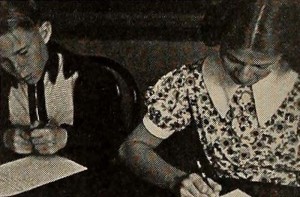
"First Film and When the Cat's Away, a double header entry, which takes honors jointly because of the strong relationship between the two, is the production of the Cinema Club of Lowell Junior High School, at Long Beach. Calif., and of the club's faculty adviser, Helen Rees Clifford. First Film, largely the work of Miss Clifford, summarizes the Junior High School group's experiences in producing When the Cat's Away, which is entirely the achievement of the youngsters. Together, the two films present a clear and concise picture of the initial production of a film by a junior high school movie club, from scenario writing and movie planning to the completed opus, ready for its premiere. So, in these two reels, one sees how the job of teaching movie making technique to youngsters, of ages from eleven to fourteen, can be handled efficiently and happily, and one learns how clear and coherent a little picture can be produced as a starter. Few high school photoplay clubs have begun so well and with so little lost motion. Very few high school first films are as clear and competent as When the Cat's Away." Movie Makers, Dec. 1938, 618.
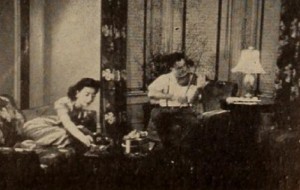
"Using black and white film, Carl D. Frazier has produced a tightly knit and well paced farce of a married couple and a burglar. Excellent lighting of wholly interior settings shows study of the monochrome medium and, properly exploited, how it can result in sparkling results. The acting is adequate for the simple plot, but it is the camera work and editing that make the film above average." Movie Makers, Dec. 1949, 472.
"Who's Been Sleeping in My Bed Now, you see, there was this turtle, and he wanted to go home with me and spend the night. Well, that was all right with me, so I took this turtle home and he even slept right in my bed. You don't believe my story? Well, neither does my wife! But it is all told in this film, right down to the bare facts in the end!" PSA Journal, Aug. 1967, 37.
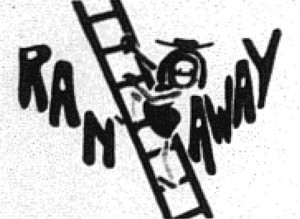
"Who's Got the Bucket? is a color cartoon that is funny enough to win the Humorous Award. This year's 3-minute entry by John Guirk of Brooklyn is so different in its art technique that it could almost be classified as an experimental or an abstract film. It's fast moving and holds audience interest to the very end" PSA Journal, Nov. 1969, 56.
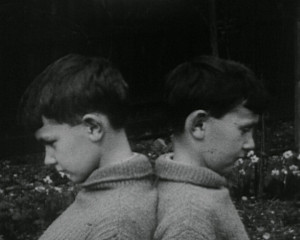
"Amateur filmmaker, cinema historian and railway engineer H.A.V. Bulleid presents a comedy of manners featuring a mysterious arrival from a distant land. A family endure a group photograph, taken by their maid, but are interrupted by the arrival of a letter announcing the imminent visit of an Australian cousin named Kit, and his companion, named only as 'Pilkington'. The daughter speculates over the identity of Pilkington, hoping for a notorious Australian bushranger, but Cousin Kit arrives accompanied only by a large cardboard box. Inside is the answer to all their questions - a dog - the very same Mr. Pilkington. But will Kit and Pilkington upset the normal balance of the family? Or will the family only upset their Antipodean cousins? And will Kit achieve his aim of finding an English wife?" (EAFA Database)
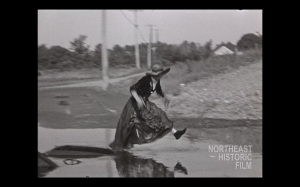
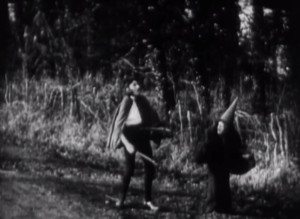
"Possibly the first student film ever made, this tale of a magical instrument was shot by the newly formed Cambridge University Kinema Club. While the film is a daft comedy, its creators went on to careers straight from a thriller: director Peter Le Neve Foster spent years filming behind the Iron Curtain, his assistant director Cedric Belfrage was a suspected Russian spy, and Pembroke Stephens - the lovesick youth - was killed in 1937 while reporting on the Japanese invasion of China." (BFI Player)
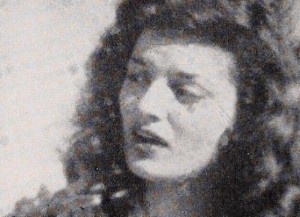
"Any husband who has ever cast a wandering eye in the direction of a neighboring redhead should appreciate the husband and wife shenanigans related in The Wolf's Tale, by George A. Valentine. In addition to its redhead, and further complications, Mr. Valentine's film has the great merit of brevity, though it includes several travel shots and a little family background as well as its smoothly told story. Basically, however, the moral of The Wolf's Tale is: Leave redheads alone." Movie Makers, Dec. 1948, 495.
Total Pages: 23